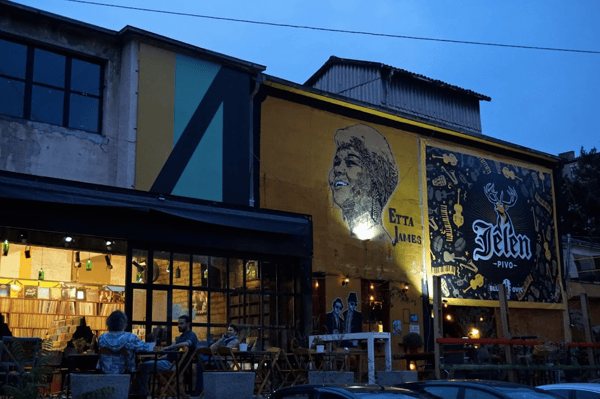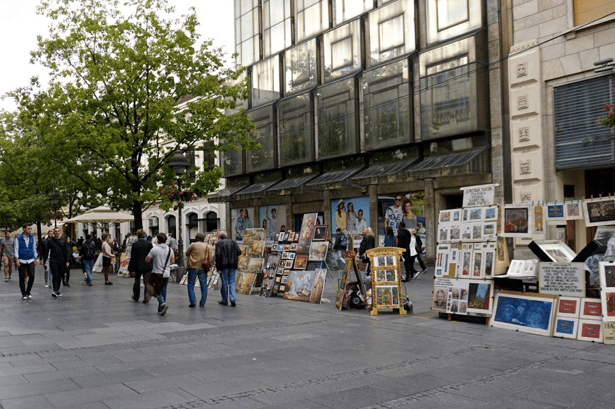I’m on a year-long adventure around the world with Remote Year: 12 cities, 12 months, 53 people. Read the last post here.
Belgrade was one of the most-surprising stops on my Remote Year journey. I didn’t have any expectations for the city and didn’t know much about it besides news stories about Yugoslavia times.
I immediately fell in love. The city was beautiful even through the many Communist-era facades, with an amazing creative scene, fun nightlife and thriving café culture. I kept describing it as Berlin’s younger, cooler, lesser-known sister, and it’s true – the whole city oozed coolness without trying too hard.

The Serbian people are a passionate group (ever seen a Serbian football derby?) who love their meats and aren’t afraid to throw around a swear word – or 100. This passion extends to their work, as well.
I met many Serbs who made their livings doing what they loved, whether that was opening a café, running an orchard to produce rakia, following a dream to open a salon or forming a production company to bring awesome events to life. Across the board, these folks enjoyed their jobs, but they worked the time they needed to make a living, and then took plenty of time to enjoy friends, family and life, as well.

This month’s lesson: remember the power of social communities
As marketers, we all too often think of social media networks as a brand-building opportunity and forget the original purpose of them: to connect communities. We’re frustrated professionally when Facebook announces it’s yet again pushing brand content further down in newsfeeds and personally when we read articles like this about social media’s negative impact on society.
That’s why I was so intrigued when I was listening to a couple of women from the Refuge Project speak about the power of Facebook. The refugee crisis is a huge issue in and around Belgrade. The Refuge Project is one of many organizations helping refugees, and a major initiative of theirs is to have the right tech support in place.
Facebook is an important channel for refugees and the organizations that support them. The Refuge Project receives hundreds of messages per day from refugees asking for help. One of the first things refugees need after disembarking from boats in Greece is a phone and data, so they can reach their networks and figure out their next steps.
The organization discovered very quickly that the browsing habits of refugees were very different than the general European population. Instead of turning to Google for answers, they start with Facebook because they know they can find their trusted communities on the network. They can access family and friends or vetted connections directly – which means access to trusted information.
It’s a very different perception than what we’re facing here with widespread fake news, and a reminder that social networks have the power to do good.

